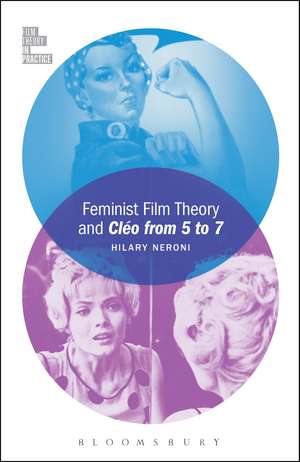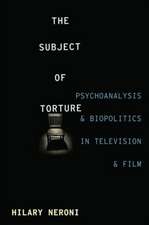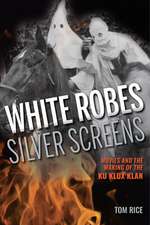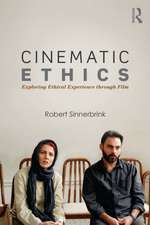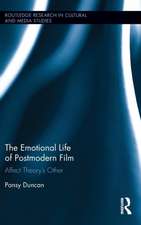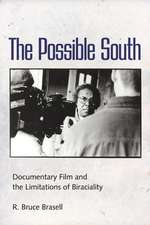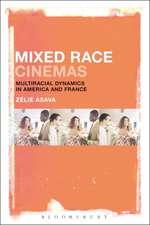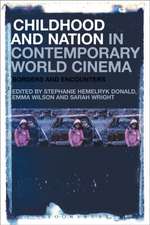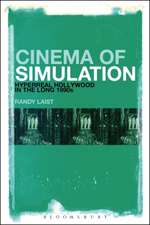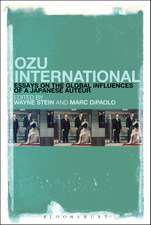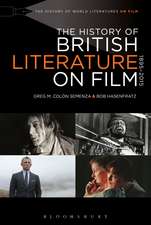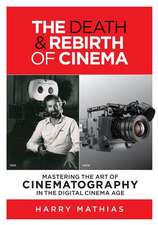Feminist Film Theory and Cléo from 5 to 7: Film Theory in Practice
Autor Hilary Neronien Limba Engleză Hardback – 23 mar 2016
| Toate formatele și edițiile | Preț | Express |
|---|---|---|
| Paperback (1) | 150.05 lei 6-8 săpt. | |
| Bloomsbury Publishing – 23 mar 2016 | 150.05 lei 6-8 săpt. | |
| Hardback (1) | 494.10 lei 6-8 săpt. | |
| Bloomsbury Publishing – 23 mar 2016 | 494.10 lei 6-8 săpt. |
Din seria Film Theory in Practice
- 23%
 Preț: 131.83 lei
Preț: 131.83 lei - 8%
 Preț: 131.38 lei
Preț: 131.38 lei - 19%
 Preț: 112.18 lei
Preț: 112.18 lei - 19%
 Preț: 106.07 lei
Preț: 106.07 lei - 18%
 Preț: 99.68 lei
Preț: 99.68 lei - 14%
 Preț: 150.96 lei
Preț: 150.96 lei - 19%
 Preț: 132.26 lei
Preț: 132.26 lei - 9%
 Preț: 150.05 lei
Preț: 150.05 lei - 19%
 Preț: 130.91 lei
Preț: 130.91 lei - 19%
 Preț: 132.26 lei
Preț: 132.26 lei - 19%
 Preț: 131.38 lei
Preț: 131.38 lei - 19%
 Preț: 130.49 lei
Preț: 130.49 lei - 18%
 Preț: 126.35 lei
Preț: 126.35 lei - 19%
 Preț: 150.96 lei
Preț: 150.96 lei - 12%
 Preț: 104.41 lei
Preț: 104.41 lei
Preț: 494.10 lei
Preț vechi: 555.17 lei
-11% Nou
Puncte Express: 741
Preț estimativ în valută:
94.56€ • 98.36$ • 78.06£
94.56€ • 98.36$ • 78.06£
Carte tipărită la comandă
Livrare economică 15-29 aprilie
Preluare comenzi: 021 569.72.76
Specificații
ISBN-13: 9781501313684
ISBN-10: 1501313681
Pagini: 168
Dimensiuni: 127 x 197 x 11 mm
Greutate: 0.3 kg
Editura: Bloomsbury Publishing
Colecția Bloomsbury Academic
Seria Film Theory in Practice
Locul publicării:New York, United States
ISBN-10: 1501313681
Pagini: 168
Dimensiuni: 127 x 197 x 11 mm
Greutate: 0.3 kg
Editura: Bloomsbury Publishing
Colecția Bloomsbury Academic
Seria Film Theory in Practice
Locul publicării:New York, United States
Caracteristici
Offers an original interpretation of Agnes Varda's Cléo from 5 to 7
Notă biografică
Hilary Neroni is Professor of Film and Television Studies at the University of Vermont, USA. She is the author of The Subject of Torture (2015) and The Violent Woman (2005), and has also published numerous essays on female directors.
Cuprins
IntroductionSection 1: Feminist Film Theory Section 2: Feminist Film Theory and Cléo from 5 to 7ConclusionAppendices: Further Reading Filmography for Feminist Film Theory Treatment
Recenzii
In this useful entry in Bloomsbury's Film Theory in Practice series, Neroni (The Subject of Torture) clearly and helpfully explains concepts that are important to feminist film theory, using French director Agnès Varda's 1962 film Cléo from 5 to 7 as a case study . Cléo is a rich subject for study, and the author's analysis is nuanced . the work's accessibility makes this an invaluable primer on film theory. One hopes the rest of the series is just as well executed and that Neroni's voice will often be heard in future.
Neroni's eloquent prose educates the novice while delighting the expert. Through a deft analysis of the contradictions of femininity-particularly the conflicting ideals of sexuality and motherhood-Neroni brings to life key concerns of feminist film theory, including identification, engagement, ideology, desire, and the cinematic framing of the female body. Her subtle interpretation of Agnès Varda as a female auteur is feminist film theory at its most compelling: a dazzling addition to the theoretical tradition her volume explicates.
A highly engaging and incisive introduction to the history of feminism and feminist film theory that explores their role for contemporary debates and feminist film practice through lucid and subtle discussion of a range of women film-makers.
.Neroni's text will appeal to many since its approach is both general and specific in its concise review of previous research and trends in the field as well as its presentation of new perspectives . a must-read in French feminist film theory courses.
Neroni's eloquent prose educates the novice while delighting the expert. Through a deft analysis of the contradictions of femininity-particularly the conflicting ideals of sexuality and motherhood-Neroni brings to life key concerns of feminist film theory, including identification, engagement, ideology, desire, and the cinematic framing of the female body. Her subtle interpretation of Agnès Varda as a female auteur is feminist film theory at its most compelling: a dazzling addition to the theoretical tradition her volume explicates.
A highly engaging and incisive introduction to the history of feminism and feminist film theory that explores their role for contemporary debates and feminist film practice through lucid and subtle discussion of a range of women film-makers.
.Neroni's text will appeal to many since its approach is both general and specific in its concise review of previous research and trends in the field as well as its presentation of new perspectives . a must-read in French feminist film theory courses.
